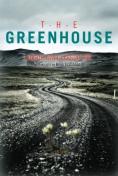BKMT READING GUIDES
The Greenhouse
by Audur Ava Olafsdottir
Paperback : 270 pages
0 club reading this now
0 members have read this book
Introduction
For Lobbi, the tragic passing of his mother proves to be a profound catalyst. Their shared love of tending rare roses in her greenhouse inspires him to leave his studies behind and travel to a remote village monastery to restore its once fabulous gardens. While transforming the garden under the watchful eye of a cinephile monk, he is surprised by a visit from Anna, a friend of a friend with whom he shared a fateful moment in his mother’s greenhouse, and the daughter they together conceived that night. In caring for both the garden and the little girl, Lobbi slowly begins to assume the varied and complex roles of a man: fatherhood with a deep relationship with his child, cooking, nurturing, and remaining also a son, brother, lover, and…a gardener. A story about the heartfelt search for beauty in life, The Greenhouse is a touching reminder of our ability to turn the small things in everyday life into the extraordinary.
Editorial Review
A Q&A with Audur Ava Olafsdottir
Question: Are you a gardener yourself, or are the references to growth and cultivation in The Greenhouse intended as a metaphor for the protagonistâ??s own growth and self-realization?
Audur Ava Olafsdottir: I would like to be a gardener like my protagonist, Lobbi--"silent in the soil," so to speak. But really, I am just an author using my imagination as a tool. While I was writing The Greenhouse, my own garden in Reykjavik was neglected.
Q: What inspired you to get inside the head of a twentysomething man?
AAO: The novel tells the story of a very young father who is "practically brought up in a greenhouse" and has three main interests in life: sex, death, and cultivating roses. The story focuses on his many complex roles as a son, a twin brother, a lover, and a father. I was particularly interested in fatherhood, which is in many ways an abstract experience--especially when you have a child with a stranger, like Lobbi does--compared to the woman's experience of giving birth. I like to play with traditional gender roles by talking about male sensitivity.
Q: Lobbi tries to move on after his mother's death by taking a journey to restore the gardens of a remote monastery. Is the monastery he visits based on a real place?
AAO: Many people have asked me where the beautiful rose garden in the story is. I answer that the possibility of creating a garden and making it real is always there if you can make it grow in the reader's mind. That's how fiction works. My Lobbi is traveling through an unnamed country. As in all fictional travels, the narrator becomes acquainted with himself, rather than with a place.
Q: Through Lobbi's grief-stricken eyes after the death of his mother, you paint Iceland as barren and desolate place. But how would you describe the country yourself?
AAO: The natural landscape is breathtaking. It is like being lost in space or in infinity, and it gives you the feeling of total freedom. Being an Icelander also means being part of a small community of 317,000 people and being constantly confronted with the unpredictable: weather, volcanic eruptions, bankruptcy. Being an Icelandic writer means expressing myself in a marginal language that no one understands.
Q: You have a degree in art history and also work as a curator. How did you get into writing? Does your eye for art give you a different perspective?
AAO: I think the main impact of working full-time as an art historian is that there's a longer gap between books. But thousands of pictures have gone through my mind, and they probably have some influence on my writing. There's often a picture in my mind as a starting point, but while I'm writing, it disappears beneath layers of text.
My view of the world has always been slightly skewed. Then, out of nowhere, I had this urge to create fictitious worlds with their own laws. Maybe it comes from a strong need for freedom. Like many writers, I want the world to be different, and writing novels is my small contribution to that.
Q: Lobbi and Anna's daughter is an angelic creature--easy to care for and a positive influence on others. But youâ??re a mother, and you know that child rearing can be far from easy. Why did you portray the baby that way?
AAO: Is not any child a miracle and fatherhood a wonderful opportunity?
Discussion Questions
No discussion questions at this time.Book Club Recommendations
Recommended to book clubs by 0 of 0 members.
Book Club HQ to over 90,000+ book clubs and ready to welcome yours.
Get free weekly updates on top club picks, book giveaways, author events and more








